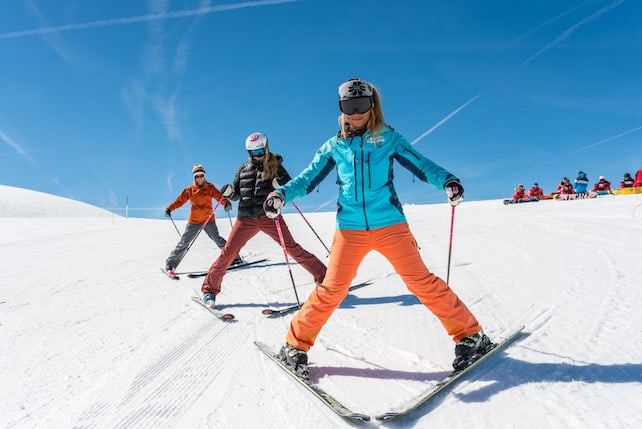
Heading to the mountains this winter? Maybe it’s your first-ever ski holiday or perhaps you’ve been once or twice before. Are you confident about it, or are you feeling a little nervous?
Even the most seasoned skiers have times of feeling cautious or tense – whether it’s because they’re getting back on skis again after a year or two away from the snow, or perhaps it’s because there’s a complete a white-out outside, or maybe the slope is narrow, crowded, or the home run icy?
We’ve asked the experts and have put together a list of the most common reasons people can feel nervous on skis.
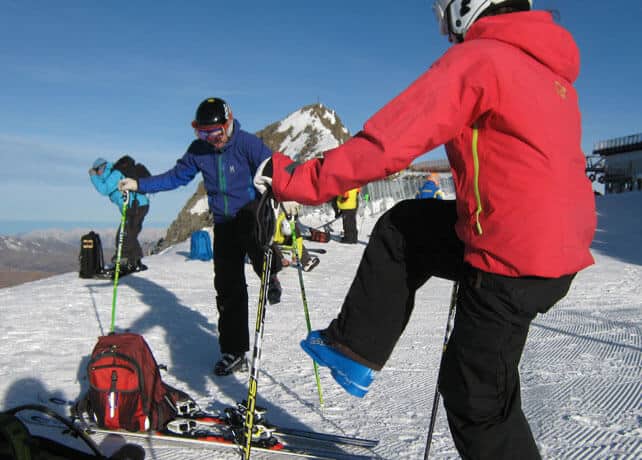
Get Fit Before You Go
Even a couple of weeks of exercise can make a difference to your skiing – and do wonders for your self-confidence. Provided you’re fit you should be able to ski for longer, and you’ll also be able to recover more quickly at the end of each day. But you shouldn’t stop there: warming up before you start skiing each morning will help your performance, reduce any muscle soreness, and it may also reduce the risk of injury.
Have a Lesson on an Indoor, Real-Snow Slope
Why wait till you get to the mountains? There are six indoor, real-snow centres in the UK, and they all offer lessons for beginners on short, gentle slopes. Of course, the instructors speak flawless English, too – and have long experience of coaxing hesitant first-timers through their snowplough turns. After a couple of sessions, you’ll be familiar with the kit, and well acquainted with sensation of sliding over snow. You’ll approach your first day in the resort with much more confidence as a result.
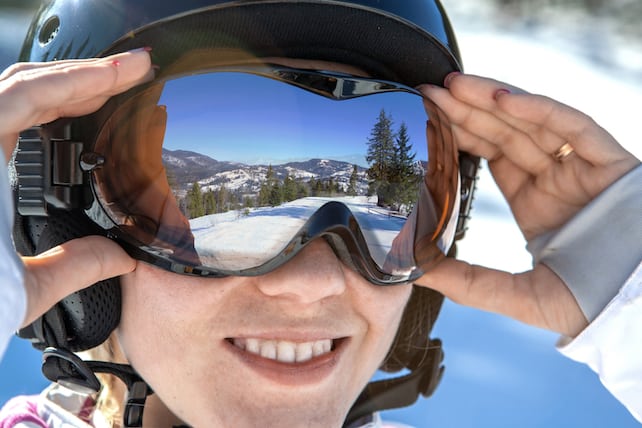
Buy the Best Goggles You Can Afford
You’ll enjoy snowy conditions and survive better in white-outs with a good pair of goggles, with lenses that won’t steam up and that are the appropriate colour for the light. Not being able to see if you’re on the flat or going downhill does nothing for the nerves.
Pick a Ski School That Speaks Your Language
This is especially important for children. Trying to learn a new technique when the instructor doesn’t speak your language can make a nervous skier even more uncertain. Check out reviews and pick a ski school that you feel confident about learning with.
Learn from a Professional
Never ever let a friend, partner, husband, wife or parent teach you to ski – and don’t try to teach your kids yourself. You/they will only learn other people’s bad habits, and – a bit like teaching a loved one to drive – it’s bound to end in tears! Don’t try to follow a more proficient partner or friend until you’ve taken plenty of lessons. Trying to keep up will use up your energy – and confidence.

Tell Your Instructor Your Fears
A good instructor will take your anxieties into account and will help you overcome them using different teaching techniques to boost your confidence.
Get Used to The Equipment
To start the process and to overcome the nervousness, try standing on snow in ski boots, without skis, which gives you the stability of being in control of your step. Now try attaching one ski only and walk on the flat snow, sliding and stepping until you have the confidence to attach the other ski. We would recommend you do this on a flat surface with no incline at all. Using your balance try walking up and down and lifting your skis from the surface each time. Also jogging on the spot lifting and dropping each leg and ski in unison. Remember, you are in control and you do not need to slide anywhere at this stage.
Have the Right Attitude
Most of the confidence in skiing for the first time needs to come from the skier mentally, as the positive mental attitude of a new skier will propel him/her to a level where very little will scare them. The main thing to remember is you are skiing to have fun. If you follow the teacher’s instruction, your time on snow will be very rewarding.
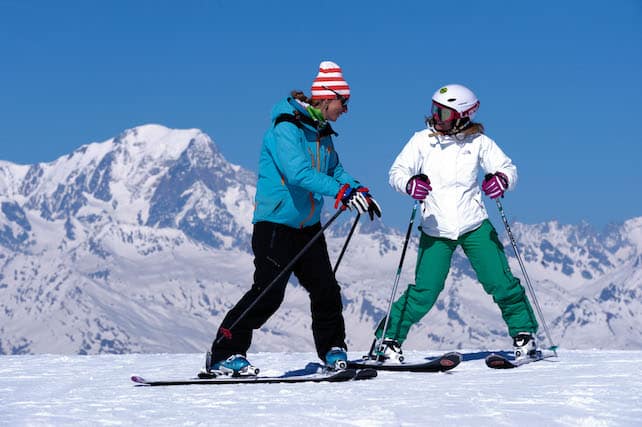
Smile!
Remember you’re here to enjoy yourself. So smile, even if it is forced at first, it will help you relax and start to enjoy the sensation of sliding on the snow.
Breathe
Take the focus off your skis for a moment, take in your beautiful alpine surroundings and, as you start to glide on the snow, breathe in normally then exhale fully. Focusing on your ‘out’ breath has a calming effect and will help you relax your (probably tense) muscles.
Relax
You must have a relaxed body position at all times as most injuries happen when the skier is tense and stiff, becomes unbalanced and falls over.
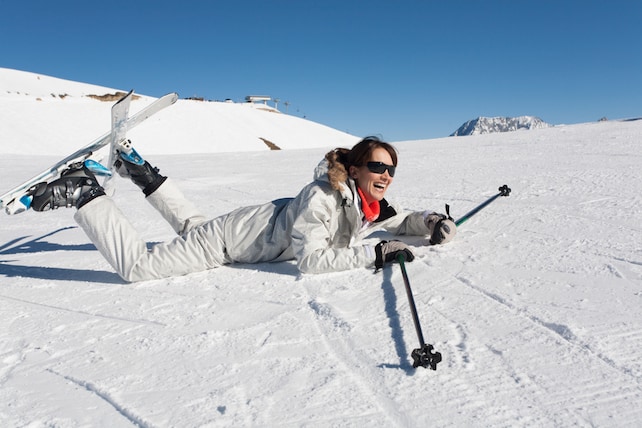
…But If You Do Fall
It’s fine fall over. Just try to stay relaxed and keep your legs straight, so that you don’t end up twisting. If you’re renting skis, make sure your bindings have been set properly for your height, weight, age and experience – so that they’ll release when they should. Always get an expert to adjust your bindings.
Get a Strong Core
If you find it hard to stay balanced and upright, a strong core will help you to balance. In bad light, keeping your arms in view can help with balance too. If you can see your hands, you will be more stable and less likely to fall over.
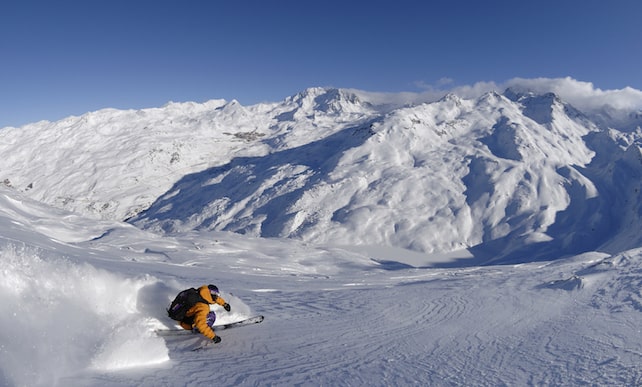
Ski the Conditions, Not the Piste Map
If you can already ski, but worry about icy/bumpy/slushy pistes, then don’t let the piste map be the only guide to your skiing day. Take the quality of the snow into account as well.
If it’s icy, then ski one notch below your usual level. If you’re usually comfortable on red-rated pistes, that means sticking to the blues. Many nervous skiers don’t much like a bumpy, uneven surface either. So it’s best to do most of your skiing in the morning, when the pistes are freshly-groomed. And if you’re holidaying over Easter, or during a thaw, read our guide to spring skiing, so you know how to make the most of the daily cycle of melting and refreezing. It can actually be a lot of fun.
First and foremost, snow is just frozen water that has settled on grassland or stoney areas of the mountain in a fluffy and cold way! It won’t bite!
Avoid the Crowds
Getting up early is a sure way to beat the worst of the crowds. It gives you the chance to ski the most popular and visible runs while everyone else is having breakfast. Then you can migrate to the quieter, less visible edges of the ski area.
Many nervous skiers also find a resort’s home runs traumatic at the end of the day. This is when everyone is heading back into town, and the pistes are often both bumpy and icy. The best policy is to come down the mountain early or – better still – ride one of the lifts downhill.
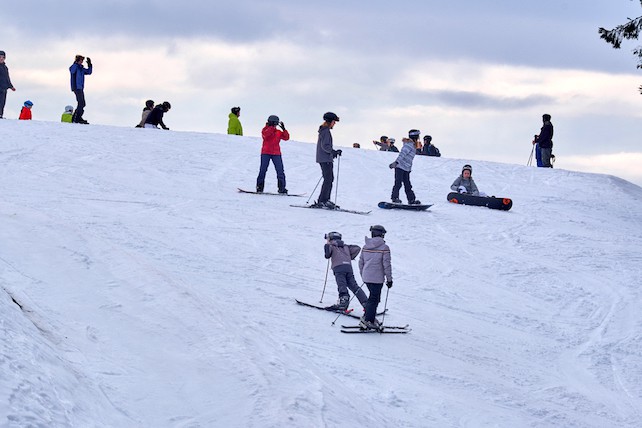

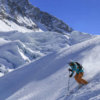
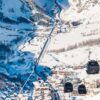
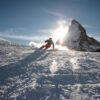
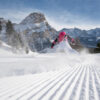
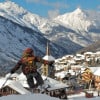
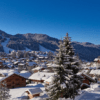

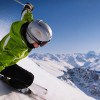

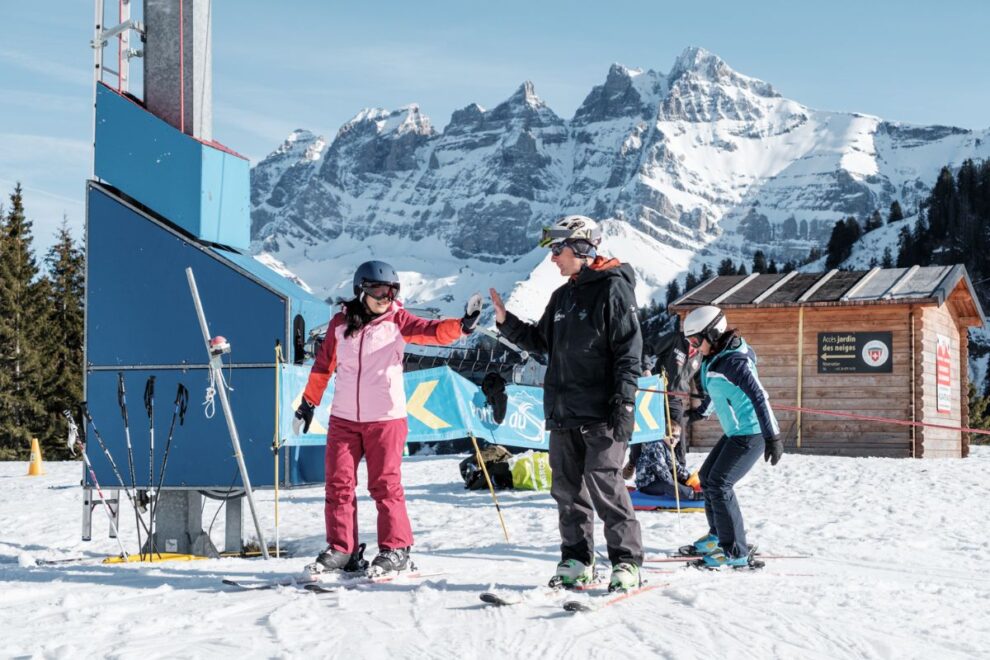
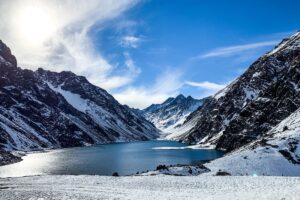


All sensible tips. One more is to remember not to ski too much too soon. Ideally leave something in the tank for day two and beyond. A lot of folks try to stay on the slopes too long on day one. Unless you are only there for one day there is a whole new day tomorrow! If you gradually build up by day three onwards you will see the difference. If you are skiing 6 days try cross country on day three or four. It relaxes and stretches your downhill muscles ready for more. Remember you are on holiday
Hi just read these tips and they are really good were going to Les Deux Alpes and want to know tips for steels and adjusting to blacks.
Jan Oakes
Good tips for sure. I find first timers, especially if its sunny, forget to drink water- often replacing it with beer! While beer is awrsome, Dehydration leads to sudden and massive fatigue, and can make you feel pretty shitty at night.
If its wet or super cold, good quality gloves (especially for kids) is a must! I often see kids out with soaking wet cheap £5 gloves, making them cold, wet and miserable. If the gloves are easy to take off or can get snow in the cuffs, the first thing the younguns will do it take them off: making them again, cold, wet and miserable. And sometimes not even a good hot chocolate break can coax them back outside. Invest in some funky mits and get then used to wearing them before the holiday so they’re not tempted to take them off all the time.
I am a newbie in skiing and this is really helpful to me. I need more confident though, thank you!
You could also have a lesson on a DRY SLOPE too or are we too posh for these now?! This will usually be about 50% cheaper and in the case of a certain ski dome, not like skiing on sheet ice and probably safer due to severe overcrowding.
This article is for me. I am quite nervous when I am skiing but I am overcoming it. Thanks for sharing these tips.
Make sure you are skiing on equipment designed for your level of skiing. Don’t take on 2nd hand kit just to save money, and if needs be hire the correct kit to be able to do those horrible short narrow turns with lumps everywhere. Just found this one out and now enjoying it again. In La Plagne with a metre of snow forecast!!!!
Nice tips, but very important are also the three ways to stand up after you fall. If you don’t know properly how to, you can feel exhausted after trying many times! If you don’t manage to come up leaning on your sticks at the mountain side, you always can put out the ski’s, but don’t let them slide off the slope!
Use distraction technique of counting 123 then turn. This gives your nervous babbling side of the brain something to do whilst the quiet intuitive side gets on with the skiing.
Focus on where you do want to turn not where you don’t ie look for the patch of soft snow not the ice/mogul. You will go wherever you look and point your feet.
I am (was) a 🏂 snowboarder for 12yrs but after a complete ACL rupture and surgery 4 yrs ago and breaking both wrists last season, followed by 4 surgeries! ….I’m going to try the dark side and learn skiing! After all it’s not often you see a 47yr old woman broader …but plenty of mature skiers !…..You just can’t get away from mountain fever once it has you ;)x…..the tips are great and I totally agree about gloves and goggle.. buy quality!
Older beginner skiers need good tips on how they should get off a chair lift, frequently a cause of anxiety.
My tip to stay safe is try to get the outside seat and turn left or right out of trouble avoiding the man (or woman) spreader who doesn’t respect your bit of snow! This is especially necessary when on a lift with my husband…….In a slightly different situation I have a snowboarder friend who we have to offer an arm to glide off together.
Be chill about it! Take your time and when the chairlift it aligned with the slope, push off gently and go straight, don’t turn, so that you don’t take out the person next to you (or all of the people) 🙂
I have been skiing for 30 years, living in Switzerland. Into my 60’s now and in Gstaad for the whole winter, I nevertheless find that each year finds me a little more nervous than the last. My advice would be that it is not a competition – only go as fast as you feel comfortable.
Great Tips! I would recommend signing up for tour once you’ve got the basics down. I did that when I went for a tour with Outdoor Norway. The guide was with us always so it was much safer and fun